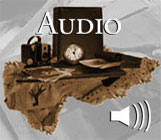1
The Jewish settlers in Chamberlain Township, like many others of the time, soon found themselves drawn to the new boomtowns of northern Ontario. Cobalt, the Porcupine and Kirkland Lake all had experienced great population rushes as individuals sought to stake their claim for fortune and riches in these mining camps. Many came as prospectors seeking their wealth directly from the land while others saw opportunity in providing the necessities of life to these mine seekers.2
Roza Brown and Hyman Kaplan were two of many who sought their fortune in the Kirkland Lake gold mining camp.4
The Jews were right behind. Generally, at that time they started to open stores. Perkus at that time already had a chain of stores. I understand they were everywhere there was a community. One time they were very large...when they really hit their peak. But they had many stores throughout the North. Every town that opened, Perkus were there.6
Roza Brown was an immigrant from Eastern Europe who arrived in the Northern Ontario during the early days of the Cobalt silver rush. She and her husband started a bakery in Cobalt, but that did not last and she made her way to the Kirkland Lake camp after working as a railway cook, apparently becoming the community's first Jewish resident. She began many enterprises in Kirkland Lake and had many passions.7
First Jew in Kirkland Lake11 July 1980
Kirkland Lake, Ontario, Canada
 Credits:
Credits:Courtesy of the Ontario Jewish Archives
8
I think the first Jew in the Swastika/Kirkland area was this strange character by the name of Roza Brown.9
In Kirkland Lake Roza made a new life for herself with a number of enterprises including taking in laundry, operating a bakery, real estate speculation and landlady.10
Many stories have grown up around how she managed these enterprises. As a landlady she ran afoul of local officials. They were concerned about the state of repair of many of her properties. Ultimately they were compelled to condemn the buildings. In response, Roza contrived to gift the properties to certain members of the Royal family. This astute move protected the buildings from fines and taxes or demolition while Mrs. Brown continued to collect rents. The state of the buildings did not improve. As author Michael Barnes summed up the situation:"The People's representatives were stumped. Rosie still collected rents. The properties still quietly decayed. Those signs and bunting were very galling to Council. As the years went by and only tattered remnants of material flapped in the wind they were reminded of their defeat. Gradually Roza sold the buildings and had disposed of the majority before her death. No one ever did find out if the royal recipients ever got to hear about their Canadian real estate"
12
She did weird things. When the town wanted to take her to court she turned the house over to the Queen and you can't sue . . . or the King and you can't sue the King.13
One of many properties to be donated by Roza Brown to the British royal family1950
Kirkland Lake, Ontario, Canada
 Credits:
Credits:Museum of Northern History Collection
14
Roza donates her properties to the British monarchy1950
Kirkland Lake, Ontario, Canada
 Credits:
Credits:Museum of Northern History Collection
